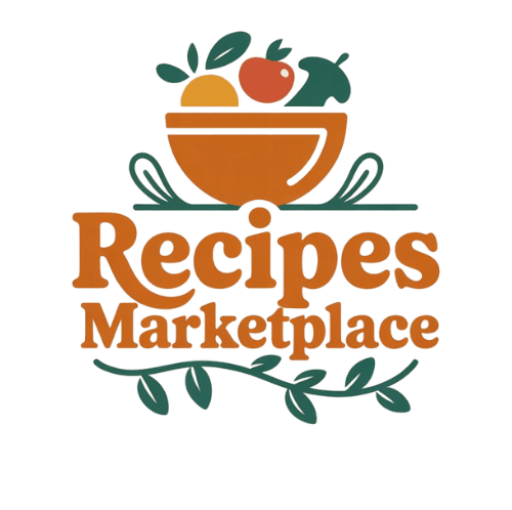:max_bytes(150000):strip_icc():format(jpeg)/ar-recall-sticker-4x3-1-a0f06d9597fe48368fd71618e85142d6.jpg)
Each week, the U.S. Food & Drug Administration (FDA), U.S. Department of Agriculture’s Food Safety and Inspection Service (FSIS), and Centers for Disease Control and Prevention (CDC) announce recalls on food and beverage products that you may have in your kitchen. From allergen warnings to Salmonella contamination, these are five new, ongoing recalls that you need to know about this week.
Ongoing Grocery Recalls This Week
Albertsons & Jewel-Osco Tuna Salad
Albertsonsalong with its sister stores Randalls and Tom Thumb, recalled a variety of tuna salad products that were supplied by Reser’s Fine Foods due to a Listeria monocytogenes contamination. Listeria was found in the breadcrumbs used to make the tuna salad, which resulted in 10 products being recalled in Arkansas, Louisiana, Oklahoma, and Texas.
The recalled products can be identified by UPC as well as “sell by” dates between July 16 and July 19.
The Reser’s Fine Foods tuna salad was also distributed to Jewel-Osco stores in three states: Illinois, Indiana, and Iowa. Jewel-Osco issued a recall for seven of its tuna salad-containing products due to the potential Listeria contamination found in the tuna salad’s breadcrumbs.
This recall impacts ready-to-eat tuna salad, sandwiches, and snack packs with “sell by” dates between July 17 and July 19. You can also identify the recalled products by UPC.
Customers are urged not to consume the tuna salad products, as Listeria can cause serious and sometimes fatal infections—especially in young children, elderly people, those with weakened immune systems, and pregnant individuals.
Parashor Pear Slice
W.W. Industrial Group issued a recall for cans of Parashore Pear Slices in juice after they were found to contain elevated levels of lead and cadmium. The 15-ounce cans can be identified by the UPC 704817164237, as well as lot code 3700/01172 6122J, product code 02/19/2024, and “best by” date Feb. 19, 2027.
The Parashore Pear Slices were distributed by Grocery Outlet stores in California and were sold at Grocery Outlet stores across the country.
If you have the canned pears, you shouldn’t consume them because a larger exposure to heavy metals like lead and cadmium can lead to poisoning. Symptoms of heavy metal poisoning can include vomiting, abdominal pain, lethargy, weakness, delirium, seizures, and coma. Heavy metal poisoning can also be more serious in children, leading to learning disabilities, developmental delays, and lower IQ scores.
World Market Emek Pistachio Cream
World Market issued a recall for Emek Spread Pistachio Cacao Cream with Kadayif after the product tested positive for Salmonella. The recalled pistachio cream was sold in 9.7-ounce glass jars and can be identified by the Batch Number 250401, UPC 8 69652 10130 1, and “best before” date April 1, 2027.
The recalled Emek Spread was distributed between June 11 and July 9 and sold at World Market stores in 32 states: Alabama, Arizona, California, Colorado, Connecticut, Florida, Georgia, Iowa, Illinois, Indiana, Kansas, Kentucky, Louisiana, Massachusetts, Maryland, Michigan, Minnesota, Missouri, North Carolina, Nebraska, New Hampshire, New Jersey, Ohio, Oklahoma, Pennsylvania, South Carolina, South Dakota, Tennessee, Texas, Virginia, Washington, and Wisconsin.
The CDC is currently investigating a Salmonella outbreak linked to the pistachio cream that has sickened four people and hospitalized one in Minnesota and New Jersey.
Salmonella can cause serious and sometimes fatal infections, especially in children, older adults, and people with weakened immune systems. If you’ve eaten the recalled pistachio cream, you should monitor yourself for Salmonella infection symptoms, which can include fever, diarrhea, nausea, vomiting, and abdominal pain—as well as arterial infections, endocarditis, and arthritis in more serious cases. If you are experiencing any Salmonellosis symptoms, you should contact your healthcare provider.
If you have the recalled product, do not consume it. Instead, throw it away or return it to World Market for a full refund.
Deep Sprouted Beans
Deep-branded Sprouted Mat (Moth) and Sprouted Moong beans have been recalled due to a multistate Salmonella outbreak. You can identify the recalled Deep Sprouted Mat (Moth) by looking for the lot codes 24330, 25072, 25108, 24353, 25171, 24297, 25058, 25078, 24291, 25107, 24354, and 24292. The recalled Deep Sprouted Moong bears the lot codes 24330, 25072, 25108, 24353, 25171, 24297, 25058, 25078, 24291, 25107, 24354, and 24292. The sprouted beans were sold at retailers nationwide.
The 16-ounce packages of frozen beans were found to be contaminated with Salmonella, which can cause serious and sometimes fatal infections, especially in children, older adults, and people with weakened immune systems. Salmonella infection symptoms can include fever, diarrhea, nausea, vomiting, and abdominal pain—as well as arterial infections, endocarditis, and arthritis in more serious cases.
The CDC is currently investigating the outbreak, which includes 11 cases and four hospitalizations across Connecticut, Florida, Illinois, Massachusetts, Minnesota, New Jersey, Pennsylvania, Tennessee, Virginia, and Washington.
If you have the recalled sprouted beans, do not consume them. If you have already eaten the beans, monitor yourself for Salmonellosis symptoms and contact your healthcare provider with any questions or concerns.
Nirwana Foods Golden Raisins
The FDA announced a recall of 28-ounce packages of Nirwana Foods Golden Raisins due to a labeling error. The golden raisins contain sulfites, but the allergen is not declared on the packaging. Therefore, the raisins are not safe for those with sulfite allergies or sensitivities to consume, as they could lead to a serious or life-threatening reaction.
The Golden Raisins were sold at Maharaja Super Market in New York and Villager Farmers Market in New York and New Jersey. You can identify the recalled raisins by looking for the lot code 24/351-2410, UPC 712321993144, and the expiration date Oct. 31, 2025, on the label.
Those with sulfite allergies or sensitivities are urged not to consume the raisins. Instead, throw them away or return them to the original place of purchase for a refund.

